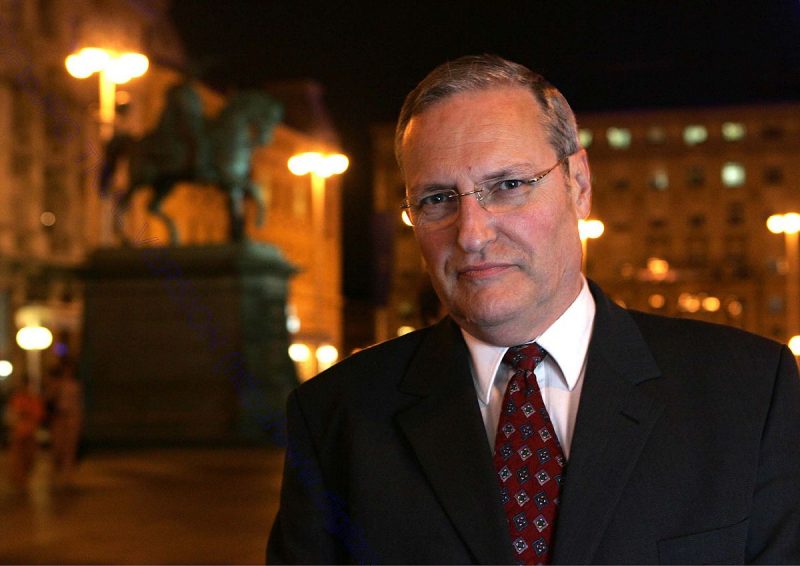Efraim Zuroff was born in Brooklyn and to this day he exhibits all the tough, streetwise attributes of his native New York and all of these attributes have proved vastly effective in his life of hunting Nazi war criminals and bringing them to book.
This compassionate, passionate, stubborn man was born to an Orthodox Jewish family who viewed themselves as Israeli rather than American. In 1970 he gained a degree in history from Yeshiva University, a Jewish university in New York, and moved to Israel to work at Yad Vashem where he became involved in Holocaust studies.
Eight years later he moved back to the US where he joined the Simon Wiesenthal Center in Los Angeles. This centre, comprising both a museum and study centre, was named after Simon Wiesenthal and Austrian, who survived the Holocaust and then became a hunter of those that has perpetrated this abomination and brought them to book. He is credited with exposing 1,100 war criminals, with the most famous being Adolf Eichmann, who led the implementation of the Final Solution, the Nazis’ plan for the total annihilation of the Jews in Europe. Eichmann was captured by the Mossad in 1960 in Buenos Aires and executed in 1962.
35 years ago, Zuroff returned to Israel to the Wiesenthal Center in Jerusalem, to continue the task of locating war criminals and bringing them to trial. His tiny office, where he works with an assistant, is crammed with files and piles of paper. The walls are adorned with posters, and hanging behind his desk is a framed copy of the New York Post from the 7th May 1945 with the headline, “Nazis Quit!”
But as Zuroff says, “Our work was just beginning.”
Zuroff is at pains to explain that it is not revenge but justice that drives the desire to see those involved with the Holocaust brought to book.
This is no quick fix and in many countries around the world, there is little or no political will to ensure a conviction. In his memoir, Operation Last Chance, published in 2009, Zuroff lays out the unflagging and detailed research and the lobbying of governments to try and secure an indictment followed, all too often, by the deep sense of frustration when he failed, and the abiding sense of justice when he succeeded.
In Germany in 2009 the trial of John Demjanjuk, a guard at Sobibor, set a welcome precedent. The Munich court accepted that anyone who had served in any of the Nazi extermination camps could be charged with, at the least, accessory to murder, even if there was no proof that they had personally been responsible for the death of any person. The defence of following orders was deemed unacceptable. This ruling led to the prosecution of several more guards that had previously escaped trial because specific deaths could not be attributed to them.
The triumph followed by frustration is clearly illustrated in the case of Hungarian, Sándor Képíró. In 1948, Kepiro had been found guilty in Hungary for his part in the 1942 massacre of Novi Sad, in which 1,200 Jews, Roma, and Serbs were slain. He was never jailed as he fled Hungary before being incarcerated and spent the intervening years in Argentina. He returned to Hungary and in 2006, Zuroff tracked him down and had him arrested.
Zuroff urged the Hungarian prosecutors to charge the 97-year-old Kepiro with war crimes, and after exhaustive lobbying they brought him to trial in February 2011, only to have him acquitted by a court in Budapest. Zuroff was incensed saying, “It was outrageous, absurd. Key evidence was unfairly disqualified for political reasons.”
Zuroff is very clear that the fact that 70 years has gone past should not diminish the crimes that were committed by these people, “Old age should not afford protection to people who committed such heinous crimes. If a mass murderer reaches the age of 90, it doesn’t turn him into a righteous Gentile. Age, infirmity, it doesn’t matter. It’s the victims who deserve sympathy, not the perpetrators.”
